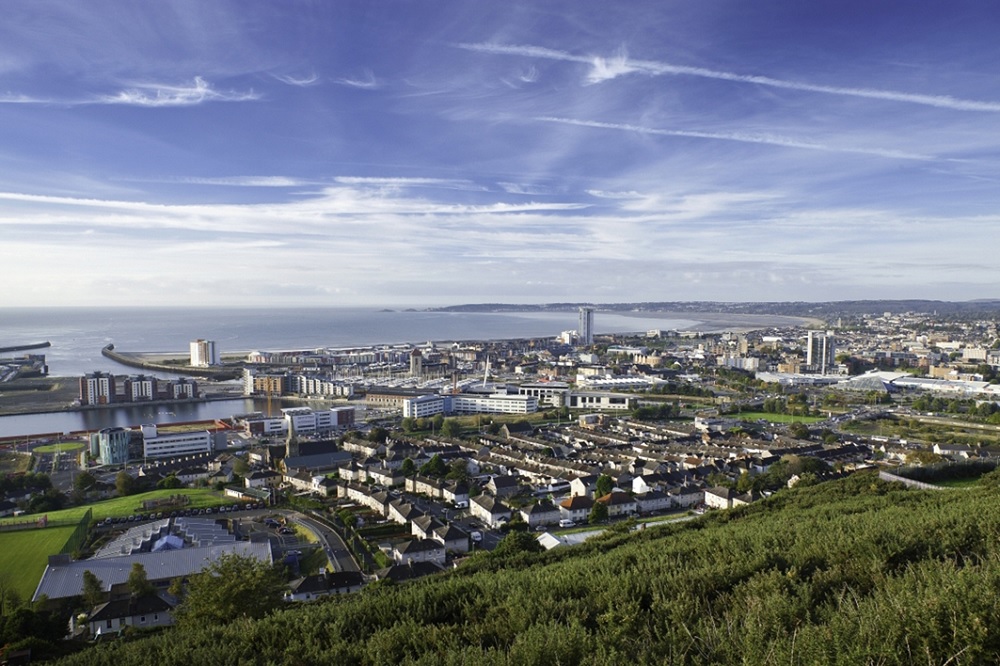‘Turkeys voting for Christmas’: Fear new regional bodies will reduce powers of Welsh councils

Richard Youle, local democracy reporter
New public bodies planned for Wales will make decisions on regional transport, land use and promote economic well-being – and they have already sparked a fierce row in Swansea.
The new corporate joint committees (CJCs) are due to be set up in south-west Wales, south-east Wales, mid-Wales and the north of Wales by April next year.
One Swansea councillor said supporting them would be like turkeys voting for Christmas.
The one for South West Wales would cover Swansea, Neath Port Talbot, Carmarthenshire, Pembrokeshire, and the Pembrokeshire and Brecon Beacons national park authorities.
The idea is more consistency on matters which supporters say need a regional approach, and a better use of expertise and specialist resources.
CJCs would be legal entities which employ staff, co-opt members and have their own budget, but some people fear it could mean more bureaucracy and less accountability.
Councils in Wales are being consulted on a proposal by Welsh ministers to instigate four CJCs but not – at this stage – about how exactly they would work.
Swansea Council has responded to the consultation, but an argument about it broke out at a meeting of full council.
Council Leader Rob Stewart said the response had been agreed by party leaders in Swansea, adding that the parties could also respond separately and that a full debate on the finer details of CJCs would be held in due course.
But Conservative councillors voted against the recommendation to submit the response to the Welsh Government – and the row has intensified since.
Speaking at the meeting, Swansea Conservative leader, Cllr Lyndon Jones, said: “I’ve got serious reservations about mandating CJCs because it will lead to another layer of bureaucracy, and that is deeply concerning.”
His Tory colleague, Cllr Paxton Hood-Williams, felt CJCs were the latest Welsh Government attempt to reduce the influence of the country’s 22 councils.
He predicted that education and social services in Wales would eventually be run by Welsh ministers, with councils just dealing with refuse, parks and other local environment matters.
“If you want to be a turkey, by all means vote for this,” said Cllr Hood-Williams.
‘Whelk’
Cllr Clive Lloyd responded for Labour, saying one of the reasons for CJCs was the “ridiculous cuts” pushed through in recent years by the UK Government.
He added that CJCs were being introduced in consultation with councils and not being imposed on them.
Liberal Democrat leader, Cllr Chris Holley, supported the consultation response but said the “devil’s in the detail”.
He said: “I look forward to seeing that detail, because the one thing I don’t think anybody wants to see in local Government is an organisation which has not got the ability to be influenced by local people.”
The recommendation to submit the response was approved, with 48 councillors voting in favour, three abstaining and nine voting against.
Speaking after the meeting, Cllr Stewart said it was “laughable” that his Conservative counterpart voted against it, and suggested Conservative councillors were split over the subject.
“It just reinforces our view that no-one in Swansea should trust them to run a whelk store,” said the Swansea Labour leader.
Cllr Jones said there had not been agreement beforehand by party leaders.
“We were briefed on the issue by (council) officers and I made clear that I thought the proposals were unacceptable,” he said.
“At my request, the officers also briefed members of my group on this, who took the same view.”
He added: “At the council meeting, the Conservative group was unanimous in voting against this.”
Support our Nation today
For the price of a cup of coffee a month you can help us create an independent, not-for-profit, national news service for the people of Wales, by the people of Wales.






